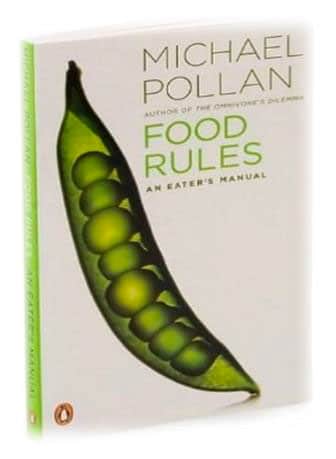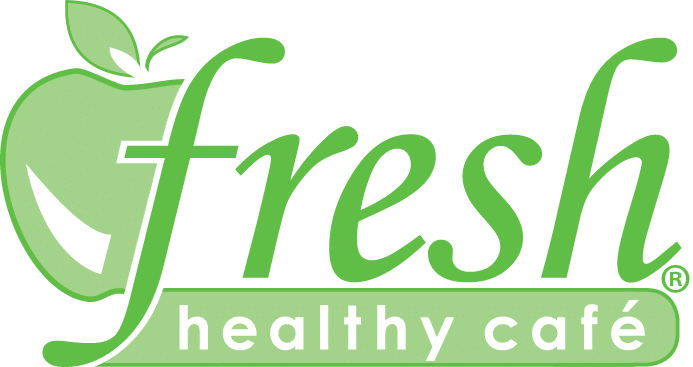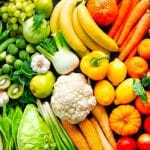
Diets high in processed meats – bacon, ham, hot dogs, lunch meat and sausage – may kill more than 100,000 people a year due to heart disease, cancer, and diabetes.
Eating a single daily serving takes about 2 years off your life – meaning it ages you two years.
Being eleven pounds overweight reduces our lifespan as much as smoking two cigarettes a day…. or drinking two beers.
One burger takes 30 minutes off your life, the same as two cigarettes. If you would not smoke two cigarettes after lunch, maybe you could choose a bean burrito instead of a burger, right?
Of course, there are also life-extending behaviors.
For example, every time you exercise 20 minutes in a day, you add an hour to your life! Also, eating five or more servings of fruit and veggies a day can add an average of four years to your lifespan for men and three for women. Have a marvelous Meatless Monday!
Fiber – such an exciting topic – helps our good gut bacteria release compounds that exert broad anti-inflammatory activities. Shockingly, thousands of patients were followed and a diet with even the minimum recommended fiber intake showed a lower risk of developing moderate or severe knee pain! In fact, fiber intake lowered the risk of having osteoarthritis in the first place. Those who consumed the most fiber reduced their risk of death from cardiovascular disease by 23%, risk of death from cancer by 17%, and a 23% lower mortality from ALL causes. Plantify your plates with these high fiber foods: beans broccoli, berries, whole grains, apples, dried fruits, and nuts… and have a terrific Tuesday!
A study in Europe found that cancer risk associated with consumption of meats is so high that we may not want to give it to children more than five times a month! In addition to the purely nutritional reasons, toxins may be part of the problem. In the US, flame-retardant chemicals have contaminated our meat (chicken in particular) to the point that it has 10 to 20 times more than chicken in Japan and other countries. Those eating plant-based diets may have about one-third the levels of dioxins compared to others.
When diets were changed to exclude meat and eggs, study subjects saw a significant drop in toxic heavy metals. And organic meat is no better for us than conventional meat – the difference between them when it came to carcinogenic contaminants was minimal. Eating less meat, reducing your toxin load, will help you live longer and live stronger! Have a wonderful Wednesday!
Remarkably interesting research is coming out on non-caloric sweeteners. Those who used aspartame, stevia and monk fruit took in sixteen fewer teaspoons of sugar daily, but their average blood sugars were the same. Those who drank a Diet Coke ate more at their next meal than those who drank regular Coke. When it comes to calorie intake, blood sugar levels and insulin spikes, they are equally as bad as sugar. Sweetness comes best when it comes from nature’s candy – fruit!
It is Fix it Friday and fall has fallen, so let us do a Fall Harvest Vegetable Chowder!
Ingredients:
• 1 medium peeled and diced yellow onion
• 3 large, diced celery stalks
• 2 diced medium carrots
• 6 cups of vegetable broth – in the soup section at the store
• 2 diced small zucchini
• 2 diced small, sweet potatoes
• 4 bay leaves
• 2 T thyme
• Kernels from 4 ears of sweet corn
• 4 cups packed spinach leaves
Place the onion, celery, carrots and 1/2 cup of vegetable stock in a large pot and sauté over medium-high heat for 6 to 8 minutes until the onion is clear.
Add the zucchini, sweet potatoes, bay leaves, thyme and remaining broth and bring to a boil over high heat.
Reduce the heat to low and simmer for 20 minutes or until the veggies are tender.
Add half the corn and cook for 10 minutes then remove the bay leaves.
Allow it to cool then puree it in a blender.
Put it back in the pot with the remaining corn spinach leaves and cook 5 more minutes.
Stir well and serve hot on this Fix it Friday and get more recipes from the Forks over Knives Cookbook!
And a blast from the past!

We mentioned the new book, “Food Rules” yesterday, and how complicated eating has become. The author boils it down too many simple “rules” though: Eat real food…. do not eat too much….and eat mostly plants. Eat real food means avoiding processed foods – the processing removes nutrients and adds toxins, and many are packaged in plastic, which is another toxin. 17,000 new food products show up in the supermarket each year! The author calls them “edible food-like substances”. They are processed in ways to get us to buy and eat more – mostly through sugar, fat, or salt. So, when you pick up one of those products, ask yourself if your great-grandmother would recognize it? If not, it is best to skip it. Do not eat breakfast cereals, and do not let your kids eat them, if they change the color of the milk. More all week and have a terrific Tuesday everyone!
Today we have more food “rules” from Michael Pollan’s book by the same name: avoid food products that no ordinary human would keep in the pantry, which have some form of sugar or sweetener listed in the top three ingredients, which have more than five ingredients, or that have ingredients a third grader cannot pronounce. It is also good to avoid products that have the words lite, low-fat, or nonfat – we have gotten fat on nonfat foods! Since they were introduced in the 70’s, we have been eating more than five hundred additional calories per day, most in the form of sugar, and the average man is seventeen pounds heavier, the average woman is nineteen pounds heavier than in the 70’s. All these things NOT to do – tomorrow we will talk about what TO do – have a wonderful Wednesday!
All week we have been talking about food rules, and a lot of things to avoid – today it is what to seek. Shop the peripheries of the supermarket – it is where the fresh foods are…or opt for the farmer’s market instead. Eat foods that have short shelf lives because they are likely not filled with preservatives. Eat foods that have been cooked by humans, and the best kitchens may be your own. If it CAME from a plant, great. If it was MADE in a plant, not great. Eat plants – especially leaves, because some whole foods are better for us than others, and greens are at the top of the list. Eating what stands on one leg (like a mushroom) is better than eating what stands on two legs (like chickens and turkeys), which is better than eating what stands on four legs (like cows and pigs). and of course, eat your colors, with as many colors as possible. Power up your plates with these wonderful foods to live longer and stronger.
Here are some more tips from the author who wrote the rules for food. He recommends buying a freezer if you have space – so many foods are thrown away that can easily be frozen and used in smoothies, and you can stock up on things from the farmers market when foods are in their high seasons. Also do not be afraid to try wild things – two of the most nutritious plants in the world are weeds! They are called lambs quarters and purslane and they are wild greens. He also recommends fermented foods we have discussed before – sauerkraut, soy sauce, kimchi, tempeh – those probiotics help our guts and that helps our immune systems. Lastly, that 80% rule of eating less, stopping before we are full, snacking less, eating slower, and simply eating less can have tremendous benefits. Have a fantastic Friday everyone!
Resource: Food Rules, An Eater’s Manual by Michael Pollan








